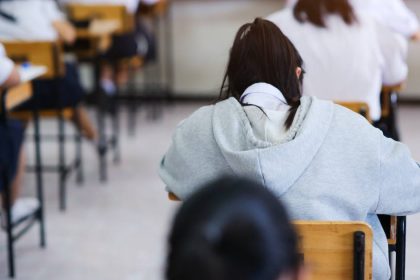A protest planned by UNSW social work students on 31 May demanded fair pay for real work, with data revealing that mandatory unpaid placements required by social work and teaching degrees are turning struggling students away from in-demand professions.
When Unions NSW compared the number of hours students spend on vocational training against the national minimum wage ($21.38 per hour), they found that students are forced to forfeit up to $21,000 by completing unpaid placements.
Undergraduate teachers are currently required to complete 80 days in the classroom. Social work students must complete 1000 hours of on-the-job training to complete their degrees.
Among the protesters calling for peak social work and teaching bodies to ban unpaid placement entirely was third-year UNSW social work student and Students Against Placement Poverty spokesperson Isaac Wattenberg. He describes the current situation as “unsustainable”
“My rent was recently raised by $160 a fortnight,” he says. “This has put me in rent insecurity, financial distress and sitting well below the poverty line for my placement.”
Fighting for a fair pay
Mr Wattenberg is completing his placement with Unions NSW.
“They tried to pay me, but I could not accept the money. If I did, it would be an employment contract, not a vocational placement, and the hours would not go towards my accreditation,” he says.
“This story is replicated again and again among my fellow students.”
Under the Fair Work Act, students completing vocational placements aren’t considered employees and therefore aren’t entitled to minimum wage or other benefits.
Mr Wattenburg is forced to rely on his partner’s disability pension and his own fortnightly youth allowance payments for living expenses.
Unions NSW Secretary Mark Morey labels the current situation perverse. He points to an Australian Council of Heads of Schools of Social Work survey of 700 students, and says 80 per cent reported adverse mental health effects from the financial pressure.
“The essential worker shortage crisis starts with unpaid internships,” Mr Morey says.
“There are about 15,000 social worker jobs listed on Seek right now and more than 18,000 for teachers. We desperately need people in these key industries.
“At the same time, we’re asking the next generation of workers to forfeit up to $20,000. It is utterly perverse.”
In 2023, research by The Queensland University of Technology (QUT) found that more than 66 per cent of university students reported suffering from financial strain. Of these, just over 41 per cent reported having to give up or significantly reduce paid employment to undertake a placement.
A decline in completion rates
A Unions NSW analysis of Australian Bureau of Statistics data shows a worrying drop in completion rates.
Within teaching degrees, the completion rate was 70 per cent in the six years ending 2011. By 2021 that six-year rate had fallen to 53 per cent.
For social work students, completion rate numbers fell by eight per cent over the same time-frame, from 58 per cent between 2005-11 to 50 per cent between 2016-21. The number of students failing to return after their first year of studies rose to 14.5 per cent.
But Mr Morey believes there is a way to turn those numbers around.
By paying each student the national minimum wage for the duration of their placements, he says universities would attract more students, reduce burnout and boost retention, with students better able to focus on their studies, rather than the stress caused by increasing financial pressures.







